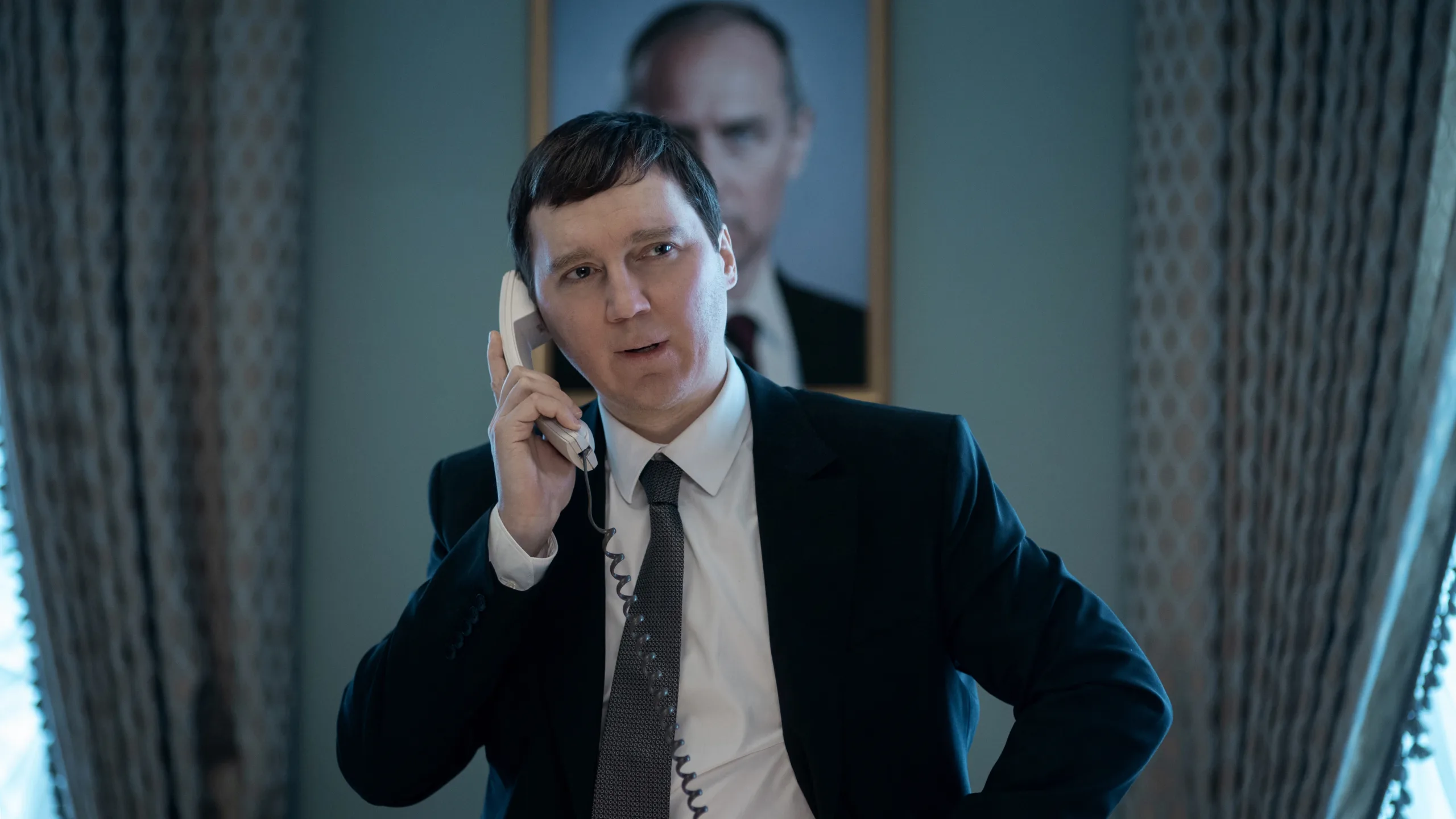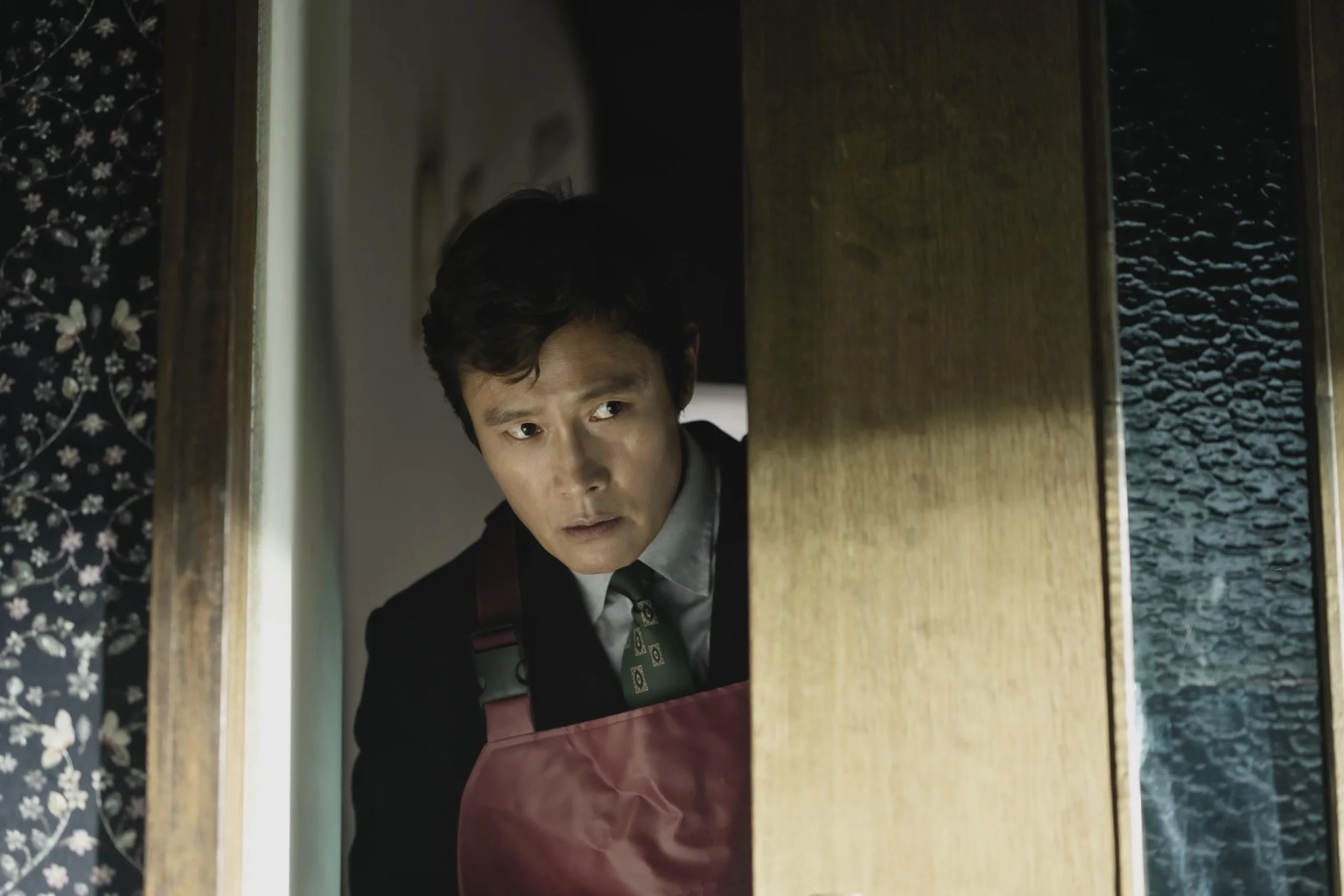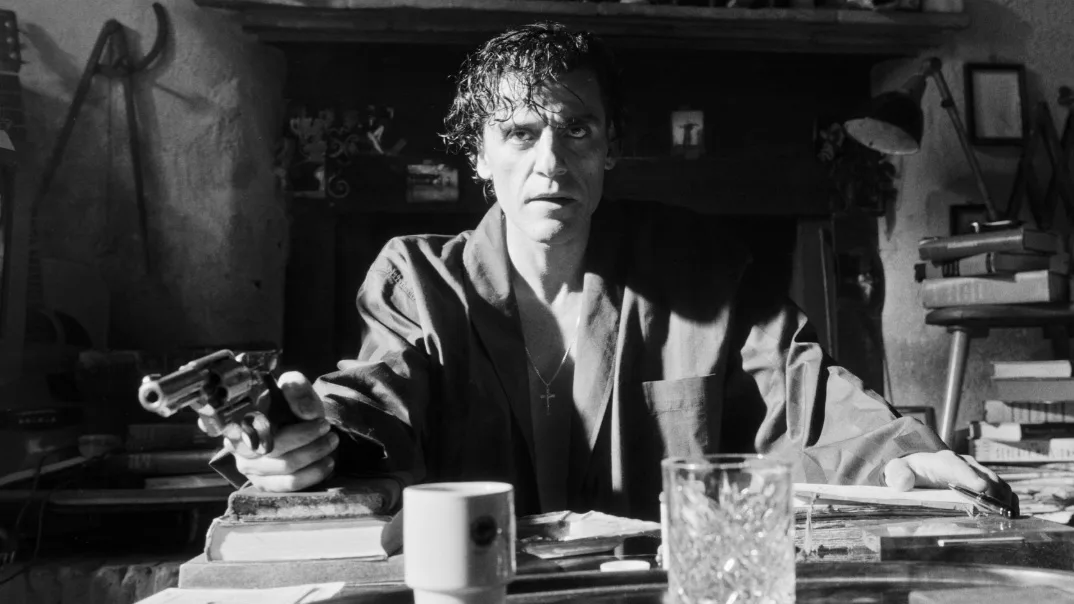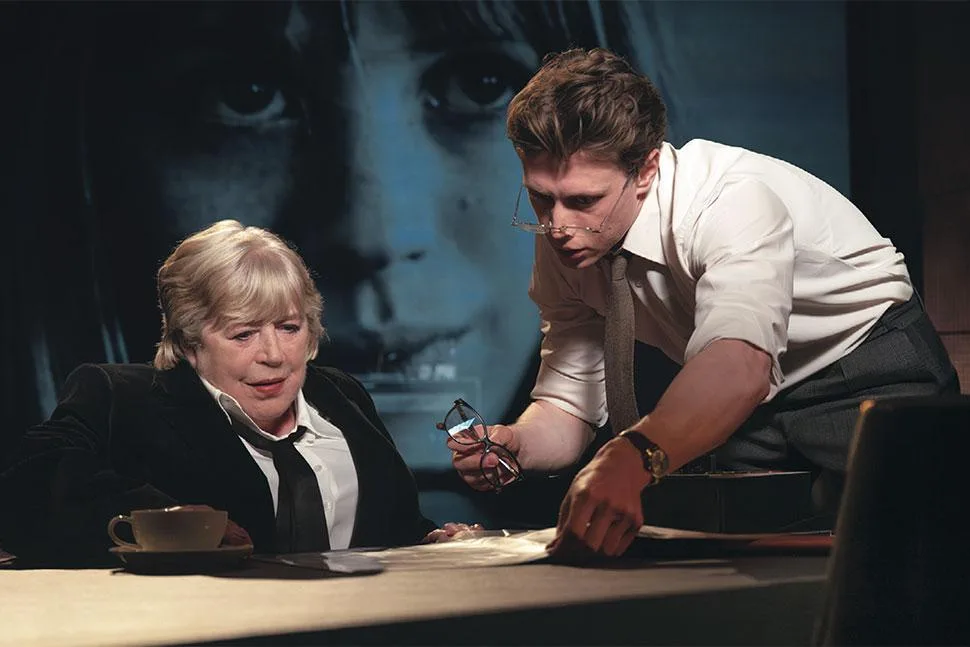I left the 82nd Biennale of film gratefully exhausted. And to be honest, my gratitude and my exhaustion were of almost equal measure. When I was in my twenties, seeing three or four or even five films in one day seemed something I could do while retaining a spring in my step all the while. In my sixties, not so much. I filed a dispatch/roundup for this website every couple of days, and as I was packing to go home I realized I completely flaked on actually writing what should have been installment number two. Oops.
These would have been Park Chan Wook’s “No Other Choice,” Olivier Assayas’ “The Wizard of the Kremlin,” and “Broken English,” co-directed by Iain Forsyth and Jane Pollard. I’ll begin with the picture I had the most mixed feelings about, “Broken English,” an adventurous documentary about the great singer and actress Marianne Faithfull, made with her full cooperation. Which means she signed off on the film’s unusual approach. It’s not a conventional linear archival footage and talking heads treatment of Faithfull’s life. Rather, it puts the then-living Faithfull (who passed in January of this year), in ill health and plugged into an oxygen supply, as she recounts her life to actor George MacKay, who plays a representative of “The Institute of Not Forgetting,” whose efforts are overseen from a control room of sorts by a supervisor played by Tilda Swinton.
Faithfull is iconoclastically boisterous as she bristles over her (arguably inaccurate) notion that she’s best known to the world as “Mick Jagger’s ex-girlfriend.” Her formidable and varied discography is a vital contradiction to that idea, but I don’t want to argue with her, and I can’t, as she passed earlier this year. Regardless of what you make of the film’s conceit, Faithfull’s presence bristles throughout, and makes the enterprise compelling. She made everything she touched compelling.

“The Wizard of the Kremlin” finds Assayas, after the personal/lyrical Covid drama “Suspended Time,” once again in international geopolitical mode (as in “Wasp Network” and “Carlos”), adapting an Italian novel about a right-hand advisor to Vladimir Putin. Paul Dano plays Baranov, a soft-spoken but supremely confident figure who consents to an interview with Jeffrey Wright’s journalist. Speaking like you might imagine a young John Houseman to sound, Baranov tells of his years by the side of Vladimir Putin, who was considered an improbable and unsuitable candidate for the leader of Russia; as we know the ex-KGB man has remade his country in his own preferred image.
A good number of my fellow critics found the film so low-key as to be practically somnolent. I thought the understatement made matters quietly terrifying. I also appreciated Assayas’ sly homage to Powell and Pressburger’s “The Life and Death of Colonel Blimp” in his presentation of Alicia Vikander in three distinct modes of appearance in the role of Beranov’s eventual wife.

Park’s “No Other Choice” is an adaptation of Donald Westlake’s 1997 novel “The Axe,” in which a long-time manager at a paper company is relieved of his jobs and subsequently plots to kill the potential candidates for his position. A mordant satire of American employment mores, it makes a comfortable fit with South Korea’s milieu—that country’s economic miracle, which began with its hosting of the 1988 Olympics, has created a concomitant culture of corporate obeisance that could use a good spanking, arguably. In what’s actually the second adaptation of the book (“Z” director Costa-Gavras actually filmed one in 2005), Park has leading man Lee Byun-hun (star of many notable Korean films but best known in the States for the series “Squid Game”) milk a lot of slapstick humor out of his initial bungling of the assassinations. While this doesn’t have the enigmatic poignancy of Park’s 2022 “Decision to Leave,” it’s got more than one potent sting in its tail.

The last picture I saw was an evening screening of Julian Schnabel’s “In the Hand of Dante,” based on a novel by Nick Tosches. I’ve been a Tosches devotee since reading his music criticism in The Village Voice before I myself started contributing rock journalism to that paper. As was the case with Lester Bangs, he was one of those guys you could admire but never dare try to imitate, so precise and hard-earned was his profane, poetic, hilarious style. I adored his Dean Martin biography Dino and got him to sign my copy at a book party held at the East Village fanzine shop See/Hear, where they served Genesee Cream Ale and I chatted up my favorite guitarist Robert Quine, a friend of Tosches’. Good times. Some years later I was actually assigned to review Tosches’ Dante novel for Washington Post’s Book World and was rather mortified to discover it was not very good. Indeed, I still consider it the least of Tosches’ fiction—thank God, four years before his death, he published what I consider his best novel, Under Tiberius, a consideration of Jesue Christ as a con man. Check it out!
The film maintains the metafictional conceit of the book, in which Tosches is a main character who’s approached by a mysterious consortium claiming to have the original manuscript of Dante’s Divine Comedy. It alternates with scenes from the life of the poet. These were the parts of the novel I considered worthwhile. The metafictional stuff, I thought, was wish fulfillment of the sort that wouldn’t tax the imagination of an average Mega Millions lottery winner. That holds for the film, kind of.
With Oscar Isaac doing conscientious work in the dual role of Dante and Nick, Schnabel chooses to imbue his version of Tosches with several of his own qualities. While the scenario of Tosches’ novel ends with the author living on his own in reasonably unimaginable wealth, in the film Nick shares his good fortune with a woman who’s about to bear his child. This is likely because Schnabel himself has a pronounced fondness for impregnating women and then raising their offspring; he has seven children, most of whom work with/for him. Go, Julian. But the idea is rather funny if you were ever even mildly acquainted with Tosches, a self-described “skirt chaser” who was also a bit of a loner. If you own The Nick Tosches Reader, check out the passages Tosches chooses to publish out of his own diary, and then try to square that with Isaac going moony-eyed over Gal Gadot. Yes, Gal Gadot. The cast, now that we’re getting to it, is what you call a doozy, also including Jason Momoa, Gerard Butler, and Franco Nero, because why not. Going out into the Venice night and back to the hotel to pack, I wondered if I had hallucinated the whole film. I wasn’t the only one.












